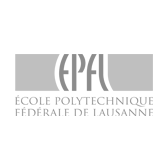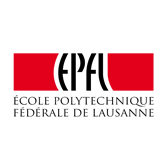EPFL
École polytechnique fédérale de Lausanne


The Theory and Simulation of Materials (THEOS) group at the Ècole Polytechnique Fèdèrale de Lausanne offers a broad range of competencies for modeling of materials using first-principles calculations. The research activities are articulated in a variety of projects that, while tackling a diverse spectrum of problems and materials of scientific and technological relevance, are developed in a highly collaborative context that favors a structured approach to each topic and grounds the research work on a more complete analysis of its various aspects.
The scientific offer consists of expertise on and assistance in the computational modeling of a variety of different systems including materials for photovoltaics (e.g., organic and inorganic absorbers) and photo-catalysis, systems for energy accumulation (e.g., for Li-ion batteries), electronic and ionic conductors, low-dimensional systems for innovative microelectronics applications, advanced functional oxides, dielectric materials, interfaces, catalysts. The expertise of the group with state-of-the-art computational techniques and algorithms guarantees the reliable calculation of a broad range of properties encompassing electronic, ionic and heat transport, magnetic and vibrational spectroscopy, catalytic reactivity in solution and at interfaces, photoemission and absorption spectra. In addition, the strong commitment and constant focus of the group on the development/refinement of advanced methods provides solutions for particularly difficult problems, like materials with pronounced localization of valence electrons or the evaluation of single-particle excitation energies. Furthermore, the in-house development of approaches and software platforms for the efficient management of large-scale calculations and the analysis of large amounts of data enables the possibility to effectively use first-principles calculations as the main tool for a virtual lab aimed at the systematic characterization of large groups of materials and also at the screening, design and optimization of materials with tuned properties for target applications. This effort is also at the base of the participation of THEOS to the Joint Research Activity of NFFA on the definition of an e-infrastructure for data and information management.
The THEOS group of EPFL participates to NFFA-EU providing, besides the expertise outlined above and a collaborative and synergistic context to develop materials simulation projects, the computational resources necessary for their actuation. These resources are mostly made available from the group share of the local HPC facilities at EPFL or from its allocations on national and international supercomputing centers.
Within the context of the Theory and Simulation installation of NFFA-EU, the THEOS group is particularly committed to projects aiming at the computational modeling and evaluation of the equilibrium (ground-state) electronic and crystal structures, energetics of formation and phase transitions, magnetic and vibrational spectroscopies, finite temperature effects (e.g., through molecular dynamics) and chemical reactivities, electronic, heat and spin transport.

